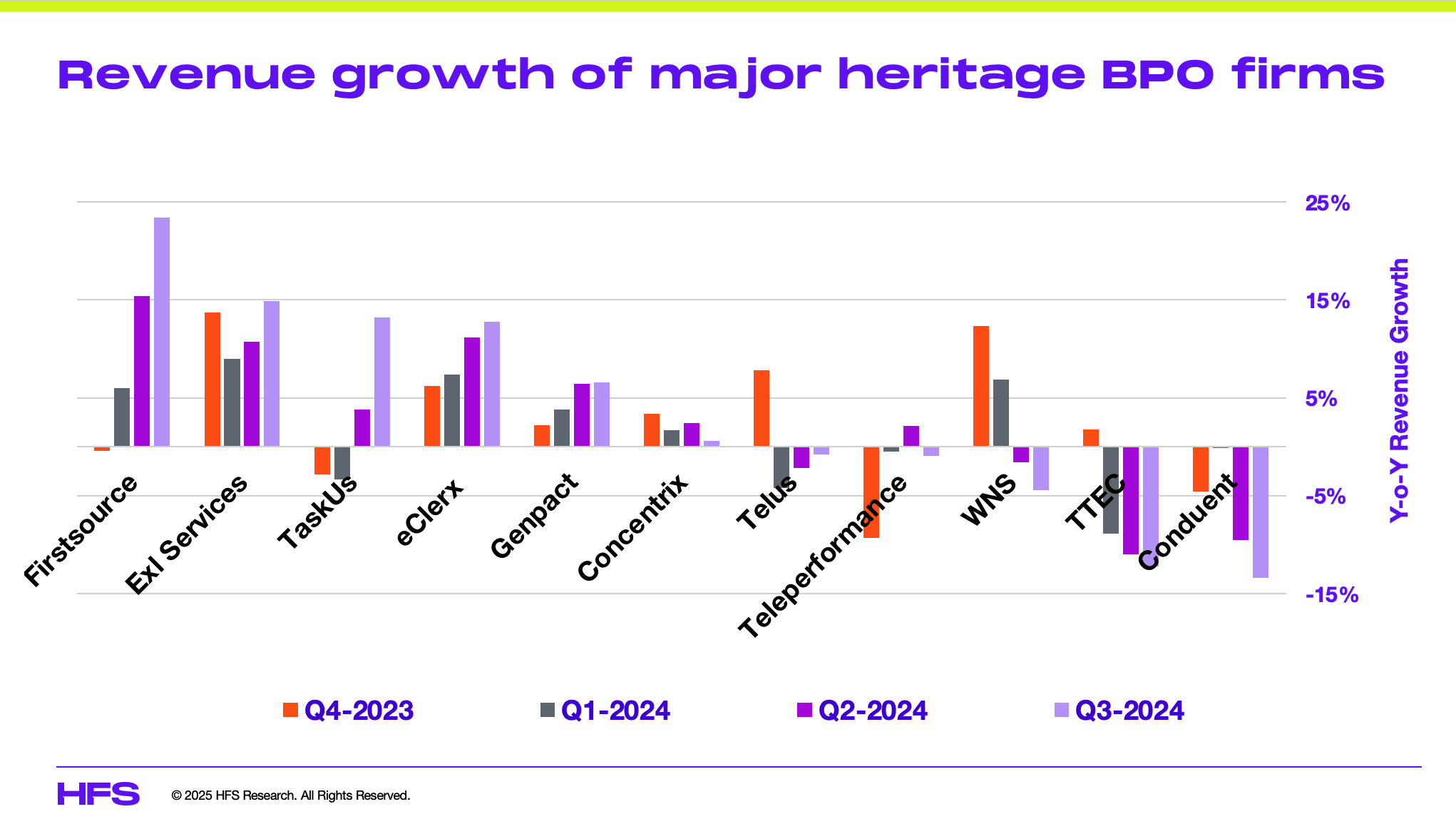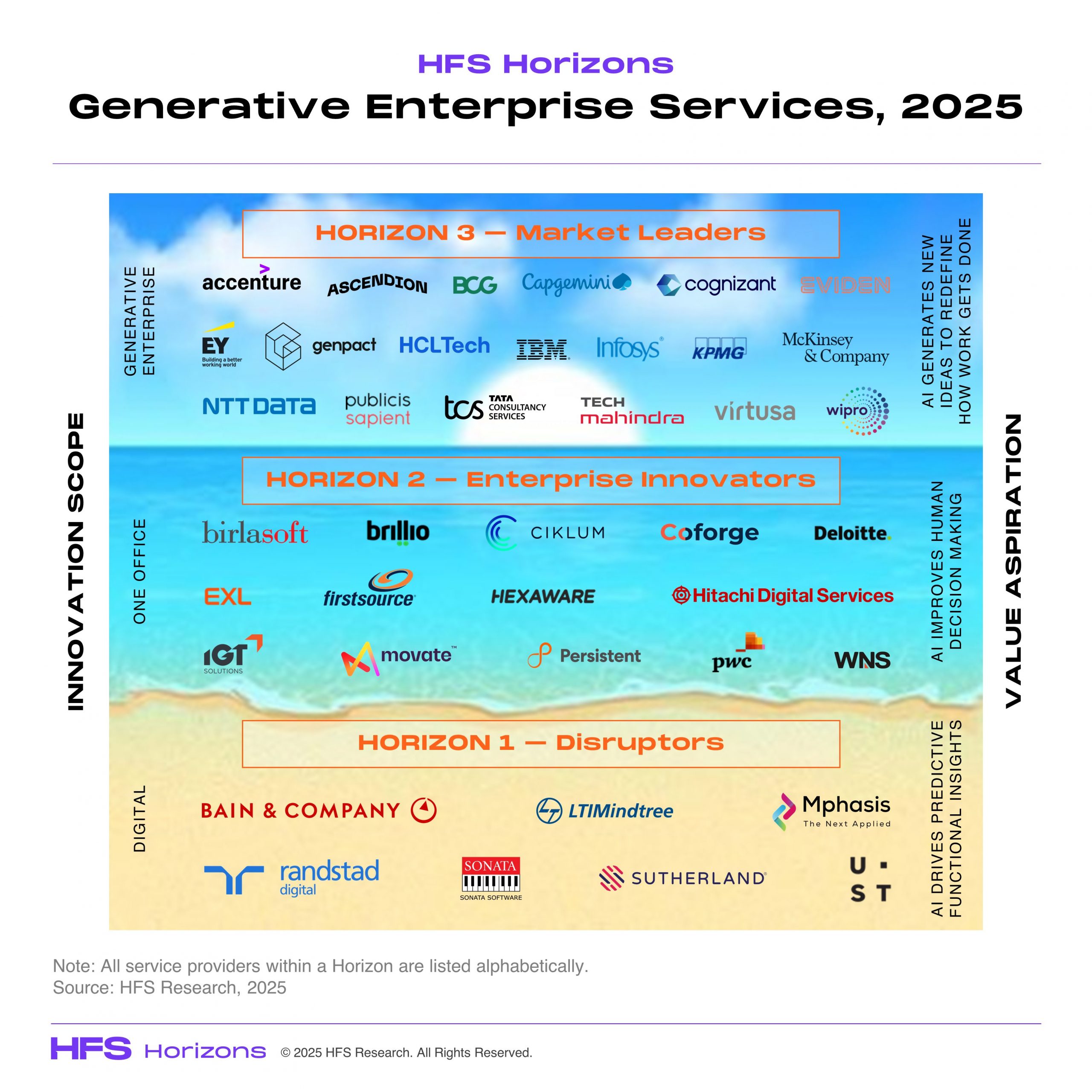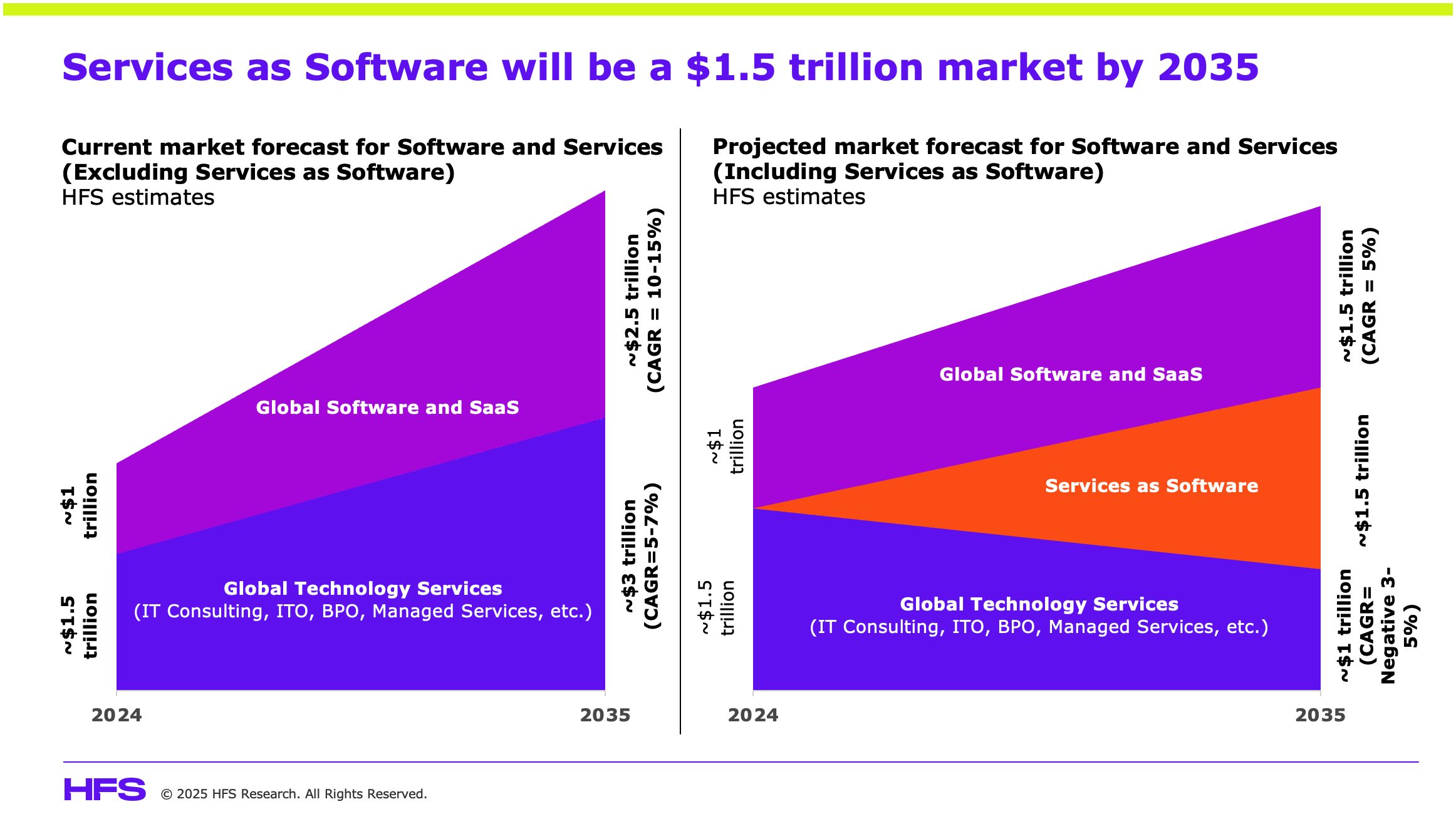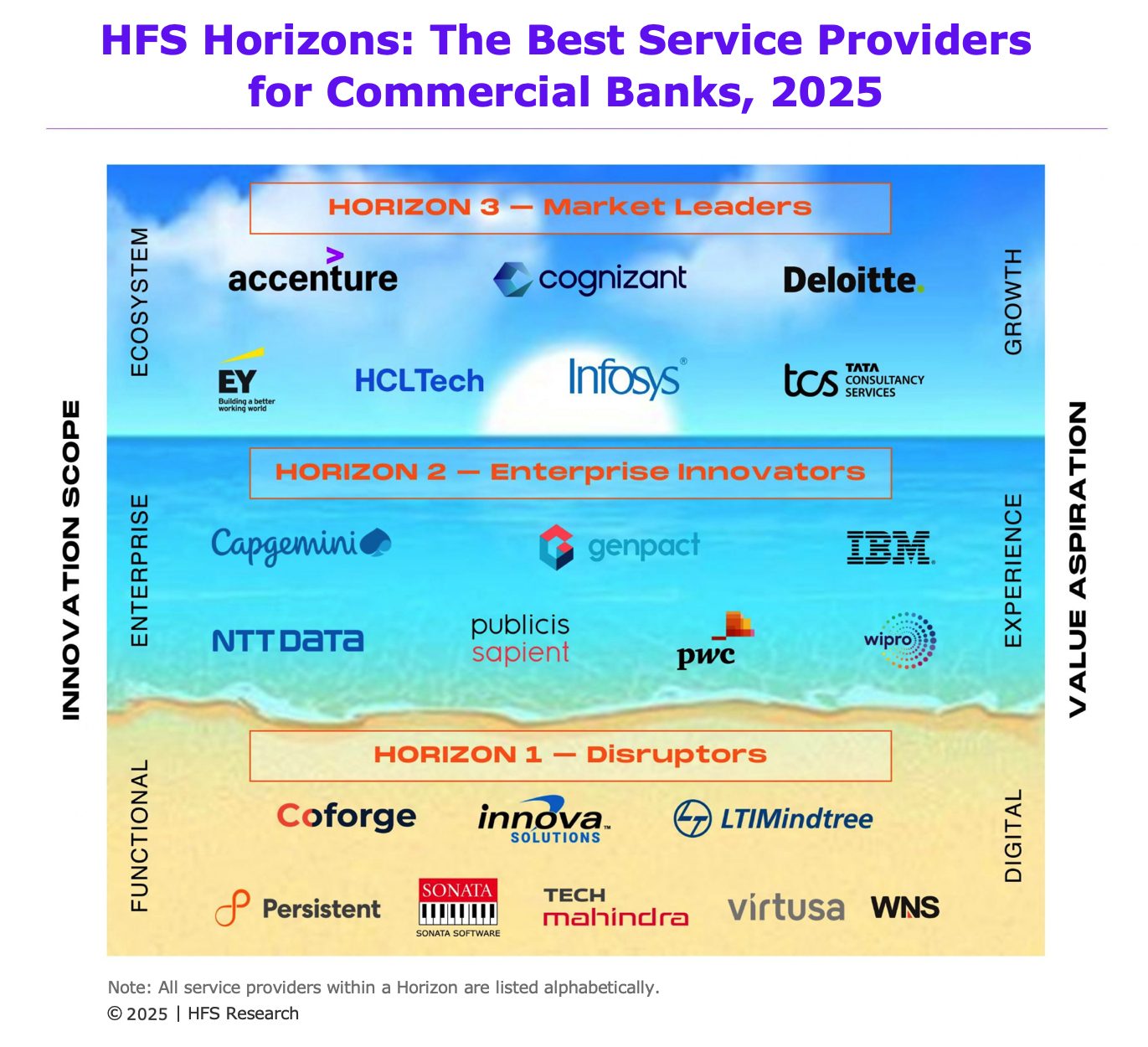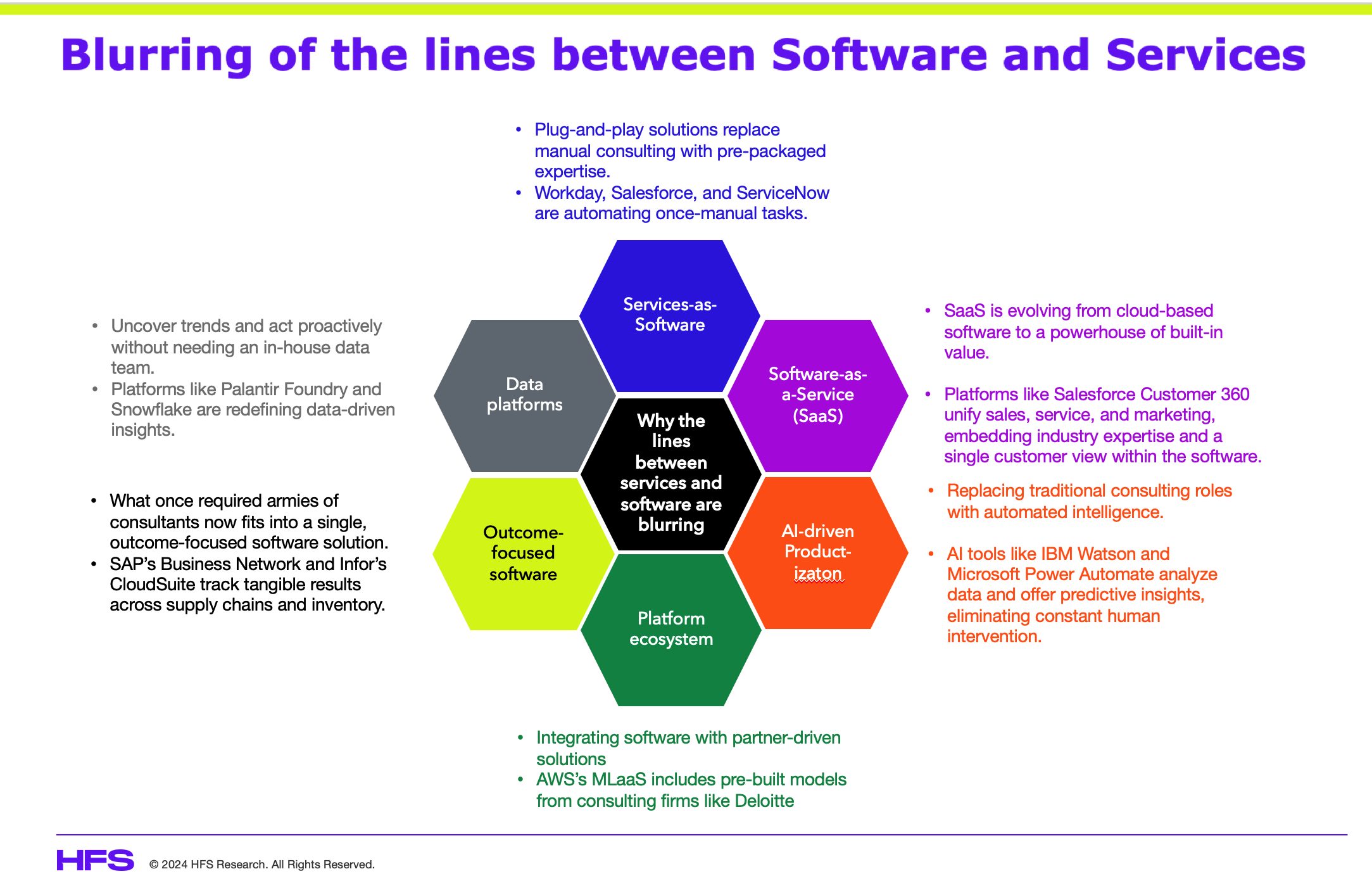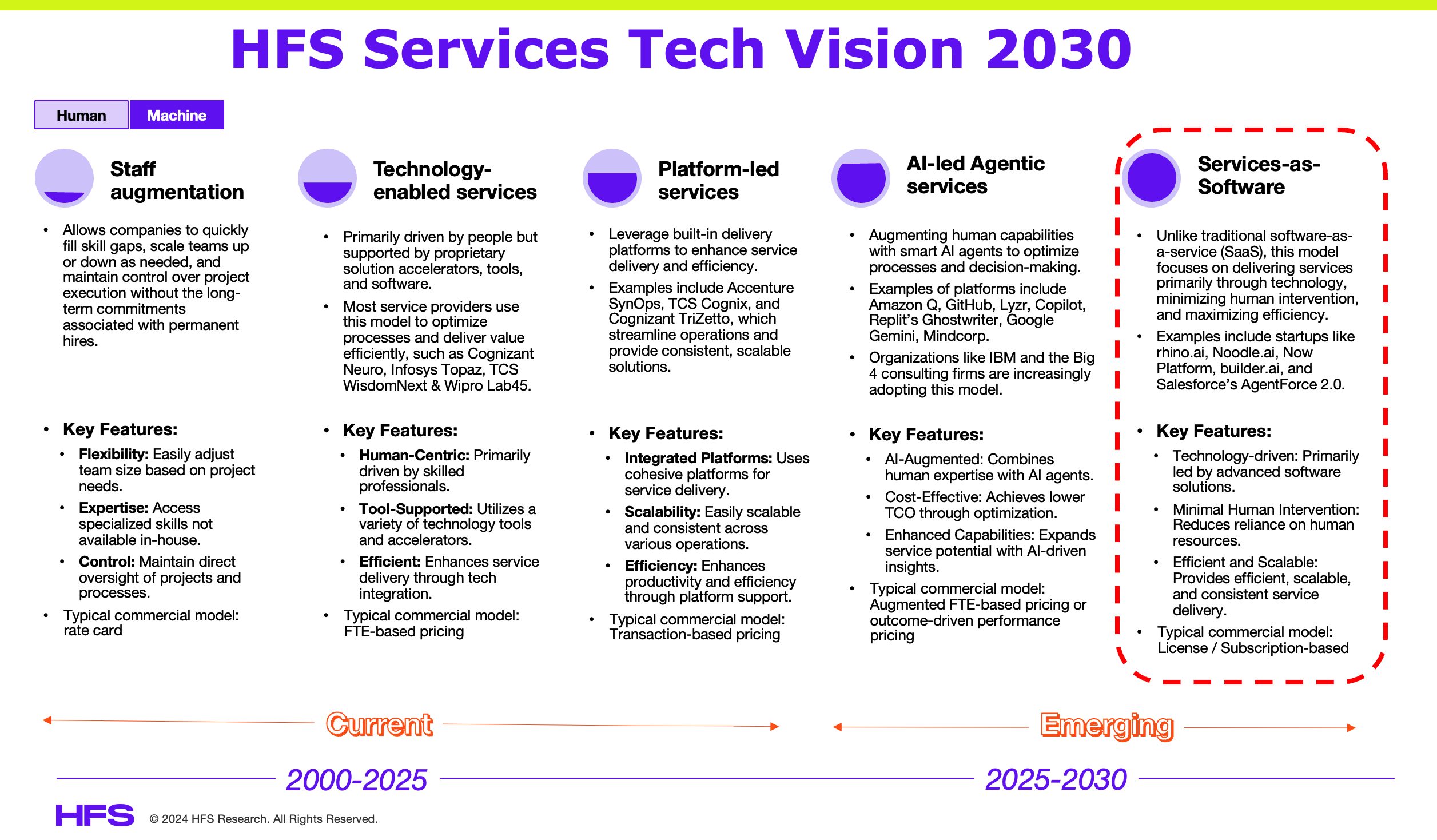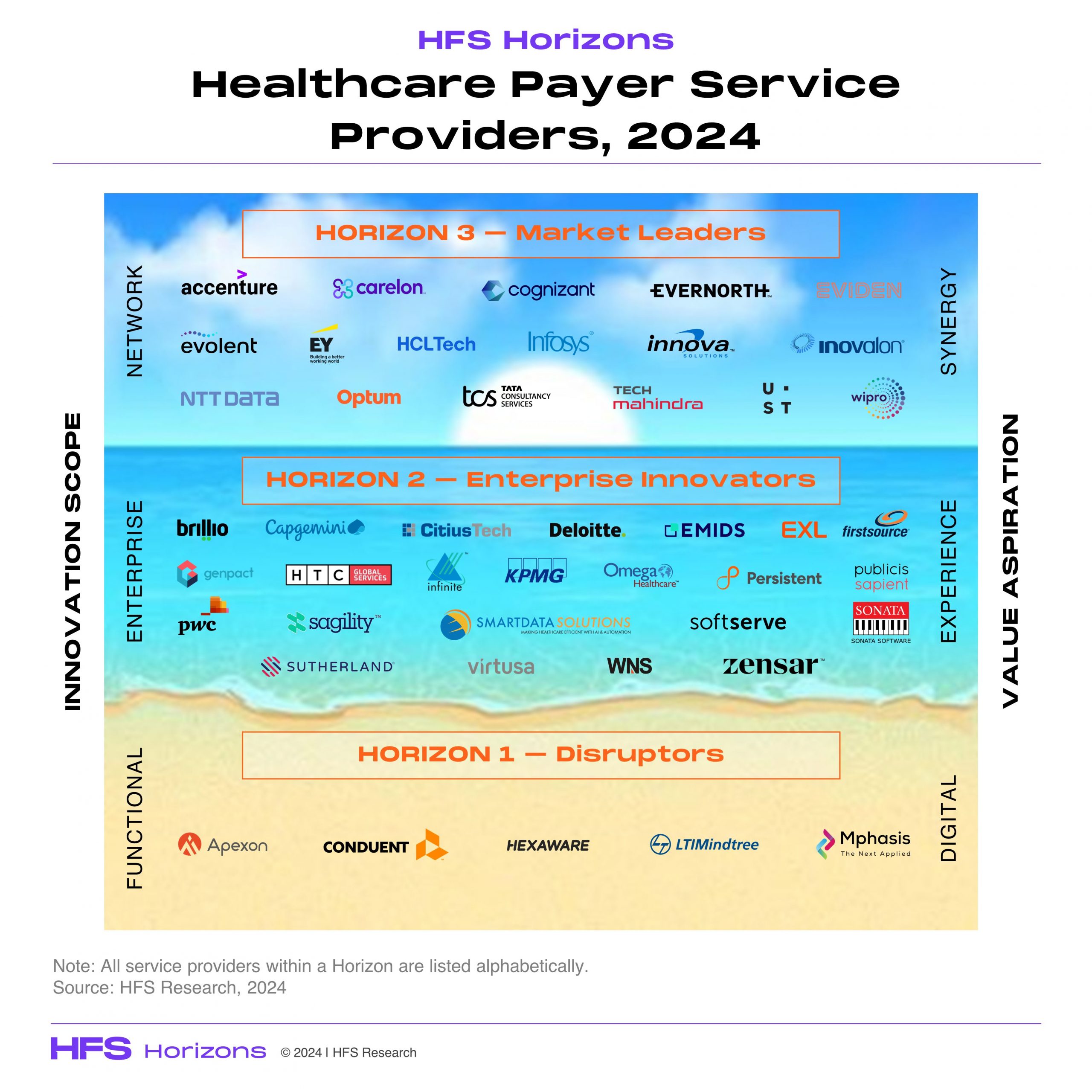-
Are we finally ready to ‘UnBPO’ ourselves?
Firstsource just put BPO on notice. It’s not just talking about transformation—it’s daring the entire industry to burn the old playbook. Read More
-
2025 is the breakthrough year for Generative Enterprise — and partnering with a capable services partner is critical
Prepare for a breakthrough year in the Generative Enterprise—powered by the potential of agentic AI to deliver end-to-end, self-improving, cross-silo processes to achieve business outcomes, the promise of deregulation, and greater access to infrastructure of the Stargate program, and a new wave of LLM innovation exemplified by China’s DeepSeek. Our Generative Enterprise Services Horizons report 2025 identified several trends: how service providers are meeting enterprise needs, effectively training people, what enterprises need more of from their service partners, and what customers and partners have to say about their service experiences. Read More
-
Services-as-Software presents a $1.5 Trillion Opportunity for both Software and Services firms
Enter Services-as-Software—an AI-first, automated service layer that’s coming to obliterate everything in its path. No more billable hours. No more clunky SaaS. Services-as-Software is not a death knell for service providers and software vendors. It’s the $1.5 trillion opportunity of our lifetime. Read More
-
Commercial banks seriously need to up their digital game to meet the B2B needs of their customers
HFS conducted a significant deep-dive Horizons Study into the needs of commercial banks and the best IT and business process service providers to support them: HFS Horizons: The Best Service Providers for Commercial Banks, 2025. This report evaluates the capabilities of 22 service providers across the HFS commercial banking value chain based on a range of dimensions to understand the why, what, how, and so what of their service offerings. Read More
-
Modern-day work culture: It’s all about ME, ME, ME
People don’t suddenly decide to become selfish. This is a product of the dehumanizing dynamics in the work environment, which results in people crying out for affirmation and a sense of connectedness that is missing from our work lives. "ME" is the world we live in, but we need to focus more on "US" to improve work culture. Read More
-
Welcome to the era of Services-as-Software… where the lines between services and software are blurring
Two very different worlds, one based on humans and the other on technology, are becoming one blended, scalable solution we are calling Services-as-Software. In short, the line between services and software is blurring and eventually vanishing, and this progression has become more crucial than ever. Read More
-
From Physical to Digital Labor: Will Salesforce’s AgentForce 2.0 replace traditional jobs and outsourcing?
Salesforce’s AgentForce 2.0 signals a new era of digital labor, redefining how enterprises manage productivity, outsourcing, and internal workforce models. By integrating AI-driven Digital Workforce Equivalents (DWEs) into its platform, Salesforce positions itself as a cornerstone of the agentic AI revolution, challenging traditional IT and outsourcing paradigms. We believe this release signals a clear path toward the services industry’s shift toward Services-as-Software. Read More
-
People aren’t stupid. Pretending your bots are human will make you fail
Humanizing bots while dehumanizing humans risks creating a soulless enterprise in which efficiency wins, but humanity loses. The meteoric rise of Agentic AI is fundamentally reshaping workplace dynamics as systems evolve from basic automation tools into autonomous digital workers that can execute complex tasks, make decisions, and even mimic human collaboration patterns. In short, after all the noise about bots replacing workers in the workplace over the past decade-plus, we now have technology that is still being positioned by many tech vendors to do just that. This evolution poses a double-edged challenge for enterprise leaders. While Agentic AI promises to unlock massive productivity gains and operational efficiencies, it also threatens to erode the human elements that drive innovation and organizational resilience. Meanwhile, employees face growing pressures to compete with tireless digital counterparts and productivity-obsessed work environments, further straining workplace culture. Read More
-
Supply chain leaders must act fast to get ahead of the looming tariffs
Donald Trump’s announcement of steep import tariffs on goods from Canada, Mexico, and China has rekindled concerns about a volatile trade landscape. His proposed 25% tariffs on Mexican and Canadian goods and an additional 10% on Chinese imports represent a significant shift from multilateralism to unilateralism. These actions threaten the integrated North American supply chain and global trade stability if implemented. Read More
-
The decline of commercial payers is an opportunity to address new markets
The HFS Horizon: Healthcare payer service providers 2024 study evaluated 45 service providers for their ability to address the cost and experience of care, and health outcomes for health consumers globally. This study reflects inputs from more than 300 healthcare enterprises, over 80 enterprise references, and approximately 80 supplier partners. Read More


